Academic integrity is the foundation of scientific work, regardless if you are a young scientist or a tenured professor. Take the example of Dr. Frances Arnold. She won the Nobel prize in chemistry in 2018 for her work on enzymes. Then, in January of 2020 she admitted that her follow-up paper, published in the highly respected journal Science, is unreproducible.
Apparently, Dr.Arnold tried to reproduce the experiment and did not succeed. She went back to look through the lab notebooks of one of her students and found that crucial data and raw result files from the experiment are missing. Since she possesses high academic integrity, she turned to the journal and retracted the paper. Dr. Arnold announced it in a tweet:
Dr. Arnold apologized for being busy at the time of the paper submission and admitted that she did not do her job well enough before submitting the paper.
Reaction to her tweets was overwhelmingly positive. Other scientists praised her for her honesty and for setting an academic integrity example. Rightfully so, because openly admitting your mistakes in the face of evidence is what any scientist should do.
One thing to remember in this tale of self-imposed academic integrity is that Dr.Arnold is a Nobel prize winner, serves on the board of directors of Google’s parent company Alphabet and is an overall highly respected individual.
What would happen to a young scientist in this situation?
Now let’s imagine you, a young researcher, in her situation. You publish a paper and a peer from overseas writes you an e-mail saying he is not able to reproduce it. Checking the lab notebook reveals that there is a mistake that you overlooked. You admit your fault and retract the paper. Just like in the case of Dr.Arnold, this is a good example of academic integrity.
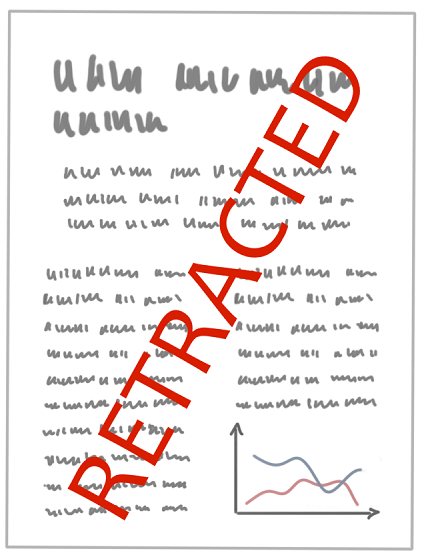
Retractions of papers do not happen a lot, so at every major lab that works in your field, this is a hot lunchtime topic. The retracted paper even gets a surge of downloads, because many peers want to see firsthand what went wrong there. When they open the paper on the publishers’ website, a sign with red bold letters on the front says: RETRACTED. It will stay like that forever. For-e-ver.
A couple of years later, you apply for an open position at a university. The search committee looks for your name online and finds the retracted paper. It is on the first page of the search results because, since many people have looked for it, Google assumes it is important.
OK, let’s say the professor who is looking for the best candidate understands that mistakes happen. We are all human after all. He would be willing to hire you despite the retracted paper. But a guy from human resources is also a part of the selection committee. He thinks that hiring someone with a tainted reputation would harm the positive image of the university. The professor tries to argue at first but eventually relents. After all, there are three other candidates similar to you with the advantage of not having any retracted papers on their records.
Academic integrity is crucial, but you can’t make honest mistakes either
In his 1974 commencement address at Caltech University theoretical physicist Richard Feynman spoke of something called “Cargo Cult Science”. He referred to tribal people in South Seas who witnessed airplanes landing with valuable cargo during World War II.
After the war ended, they wished for this to repeat so they cleared sort of a runway and put fires along the sides. They built a hut for the “controller” and put two wooden pieces on his head so that they look like headphones. They even had bamboos sticking out to imitate antennas.
Of course, the planes never returned.
Feynman compares this “Cargo Cult” to something that looks like science from the outside but lacks the scientific method. The islanders did everything, the form was exactly the same. They put forward a hypothesis based on an observed phenomenon and expected that repeating the conditions would repeat the results. They did not attempt to rigorously analyze and disprove the hypothesis and we know that important information was missing in their approach.
A young researcher has to know the scientific method, follow scientific principles for setting up an experiment, be thorough in evaluating your hypothesis and be utterly honest in reporting the results. When explaining the findings, a researcher has to report all the facts that agree with his theory, but he also has to explain everything that could dispute the findings. Feynman summarizes it like this:
“…give all the information to help others to judge the value of your contribution; not just the information that leads to judgement in one particular direction or another.”
With few exceptions, almost none of us would try to be deliberately dishonest. But neither did the Cargo Cult people. At the end of the day, it will make little difference in what the causes of an unreliable research study were, especially for a young scientist. Not only do you have to possess academic integrity; you also have to know and follow the scientific method for performing thorough research.
A biased, all-be-it-interesting result, might give you some short-term satisfaction and fame, but inevitably the facts will come out. If your results are not rigorous enough, someone eventually will find out and your academic integrity will be questioned and inevitably your reputation among peers will suffer. As a consequence, your career prospects will diminish.
Do your job better than a Nobel prize winner
Mistakes happen to everyone. I am in the camp of researchers who thinks a retraction of a paper should not be viewed as a failure of a scientist. Rather it should be an integral part of moving scientific knowledge forward.
Unfortunately, this is not the case in the current academic world. Alarms of irreproducible research are sounding across the scientific community and this reduces the tolerance toward mistakes. A retraction because of an unreproducible result, even if not a deliberate one, can seriously damage the reputation of a researcher.
In Biosciences, for example, a retracted paper will cause a 10% to 20% loss in future citations. But this is only a small part of the consequences. More importantly, you risk losing your job, funding, and collaboration partners. A damaged reputation will reduce your chances of obtaining research projects, publishing papers, attracting students, and getting a new job.
Sure, there are exceptions. For a Nobel prize winner, like Dr. Frances Arnold, admitting her mistake and retracting an unreproducible paper might have even improved her reputation.
For the rest of us, especially young scientists who still have to prove our worth to the scientific community, we have to possess the uttermost academic integrity and thoroughness when performing research. If achieving this means that we sometimes need to do more than a Nobel prize-winning scientist, so be it.
P.S. If you do happen to find a mistake in your published work, this article should not hold you back from retracting the paper. Academic integrity means doing the right thing in spite of the possible consequences. My earlier tale of what could happen was just daydreaming. Every situation is different and a retracted paper does not necessarily mean the end of your career.
P.S.S Retractionwatch.com is a blog that reports retractions of journal papers. It also hosts a list of authors who have retracted the most papers. Check it out.
A guide for writing papers that get cited
Knowing how to write research papers can make the difference between being invited to apply for a tenure track position and sending out CVs to random professors in the hope of a miracle.
Hi! My name is Martins Zaumanis and in my interactive online course Research Paper Writing Masterclass I will show you how to write research papers efficiently using a four-step system called “LEAP”. You will learn to to visualize your research results, frame a message that convinces your readers, and write each section of the paper. Step-by-step.
And of course, you will see how to answer the infamous Reviewer No.2 🙂
The author

Hey! My name is Martins Zaumanis and I am a materials scientist in Switzerland (Google Scholar). As the first person in my family with a PhD, I have first-hand experience of the challenges starting scientists face in academia. With this blog, I want to help young researchers succeed in academia. I call the blog “Peer Recognized”, because peer recognition is what lifts academic careers and pushes science forward.
Besides this blog, I have written the Peer Recognized book series and created the Peer Recognized Academy offering interactive online courses.


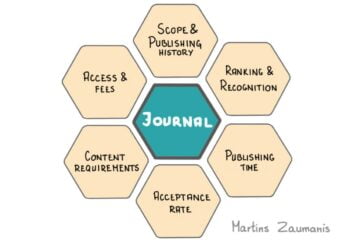
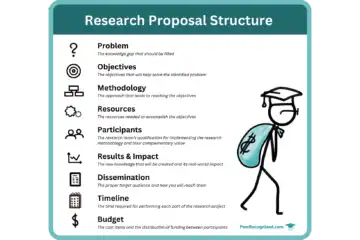
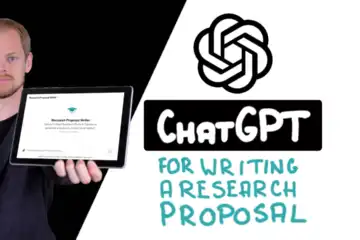
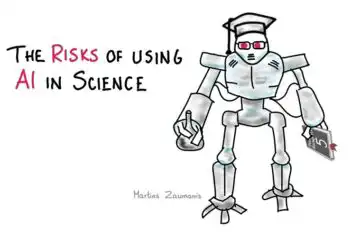

2 comments